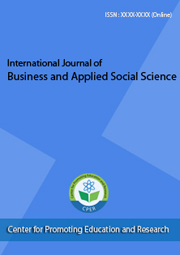Journal Menu
current
VOLUME; 7, ISSUE; 1, JANUARY 2021
Table of Contents
Articles
Author(s): Stephen Errol Blythe, Ph.D., Ph.D, J.D.
Full Text
1167 1182
1167 1182






